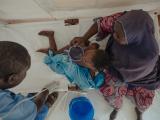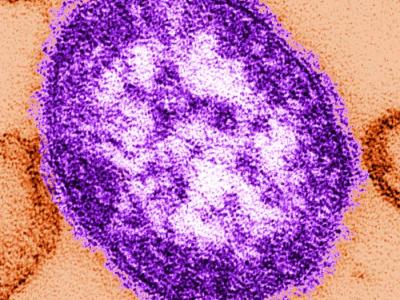Apr 19, 2002 (CIDRAP News) A British woman living in Florida has what appears to be the first case of variant Creutzfeldt-Jakob disease (vCJD) reported in a US resident, according to the Centers for Disease Control and Prevention (CDC).
The 22-year-old woman's disease was diagnosed at a hospital in the United Kingdom, the CDC said in a statement released yesterday. The patient, a UK citizen, has since returned to the United States, and Florida and the CDC are investigating her case.
"Preliminary analysis of information provided by the U.K. indicates that the patient's clinical condition and history are consistent with vCJD acquired in the U.K.," the CDC statement said. "However, the only way to confirm a diagnosis of vCJD is through study of brain tissue obtained by a brain biopsy or at autopsy."
The rare, fatal brain disease is believed to result from eating products from cattle that had bovine spongiform encephalopathy (BSE). No cases of BSE have been found in the United States, but an outbreak of BSE occurred in the United Kingdom in the 1980s and 1990s.
The CDC said it "was not unexpected" that a case of vCJD would be seen in the United States in a person who had lived in countries where BSE cases were occurring. "Of the 125 vCJD patients worldwide, almost all had multiple-year exposures in the United Kingdom between 1980 and 1996 during the occurrence of a large UK outbreak of BSE among cattle," the agency said.
The CDC was informed Apr 17 that the patient had a probable case of vCJD and sent a medical epidemiologist to Florida to investigate, officials said.
See also:
CDC news release
http://www.cdc.gov/media/pressrel/r020418.htm


















